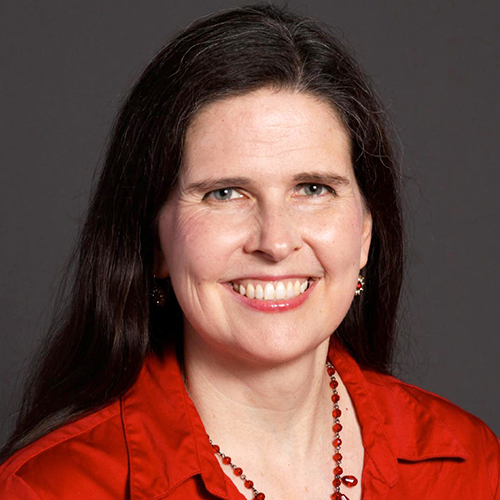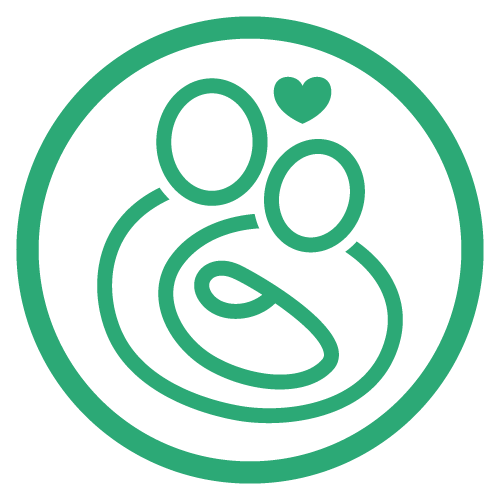 Postpartum Depression Online Course(s) & Continuing Education
Postpartum Depression Online Course(s) & Continuing Education
Access the latest clinical skills and research for Postpartum Depression for PERINATAL MENTAL HEALTH professional training. These Postpartum Depression online courses provide practice-changing skills and valuable perspectives from leading global experts. This Postpartum Depression education has been accredited for a variety of CEUs / CERPs and can be accessed on-demand, at your own pace.

"But You're Supposed to Be Happy!" Perinatal Mood and Anxiety Disorders

Marie Zahorick, MS, APRN, PMHNP-BC, FNP-C, IBCLC became a La Leche League Leader in 1999 and an IBCLC in 2005. After several years of working as a hospital-based bilingual Spanish-speaking IBCLC, she attended nursing school and eventually became a board-certified Family Nurse Practitioner. In the meantime, she continued working as a hospital-based lactation consultant doing inpatient, outpatient, and NICU lactation. She did not get much sleep.
After graduate school, Marie went to work in psychiatry and also did a post-masters certificate to became board-certified in psychiatry and mental health. She was fellowship-trained to manage patients in the acute inpatient setting, partial hospitalization, outpatient office, and OB patients in the general hospital setting.
She specializes in women's psychiatry, especially medical management of women who are pregnant or lactating. Her expertise also includes general psychopharmacology. She is experienced at diagnosing and treating mental conditions such as bipolar disorder, perinatal/postpartum mood and anxiety disorders, postpartum psychosis, obsessive-compulsive disorder, premenstrual and perimenopausal mood disorders, and personality disorders.
She lives in the Chicago area with her husband and three adult children in their 20s. Her children all breastfed for at least two years but now just make faces when confronted with that embarrassing fact.
Topic: Medications and Mothers' Minds: Psychopharmacology for Lactating Mothers - [View Abstract]
Perinatal mood and anxiety disorders (PMADs) include a spectrum of commonly-occuring mental health disorders. About 17% of postpartum mothers worldwide experience depression, with rates climbing to 60% in some low social-economic status women and adolescent mothers.
However, less well-known PMADs include perinatal panic disorder, perinatal obsessive-compulsive disorder (OCD), and perinatal post-traumatic stress disorder (PTSD). These often include very distressing intrusive or bizarre thoughts, behaviors, or flashbacks.
Perinatal bipolar disorder and postpartum psychosis are particularly dangerous due to severe depression, and reckless or bizarre behavior that can endanger mother and baby.
Women with bipolar disorder may have stopped medications during pregnancy and are experiencing mood instability. They may also not realize they have bipolar disorder and require careful diagnosis, since twenty-two percent of depressed women postpartum have bipolar depression. Postpartum psychosis is an emergency and occurs in 1 to 2 of every 1,000 deliveries. This requires immediate hospitalization for safety, due to a 5% suicide rate and 4% infanticide rate. The midwife is part of the safety net for postpartum mothers and is a vital first step for identifying possible PMADs and referring the mother for mental health treatment and support.

Impact of Paternal and Maternal Postpartum Depression on Parenting Behaviors and Infant/Child Outcomes

Dr. Sheehan Fisher is an Assistant Professor and clinical psychologist at Northwestern University. His research career focuses on the effects of perinatal and subsequent parental mental health on infant/child health outcomes, with a specialization in the emerging field of father mental health. More specifically, he examines: 1) the biopsychosocial risk factors for parental psychopathology, 2) the impact of parental psychopathology on parenting behaviors and the family environment, and 3) the combined effect of the family environment on infant/child medical and emotional health outcomes. His aim is to reconceptualize parental mental health research to integrally involve both mothers and fathers to differentiate the etiology, course, and potential interactivity of paternal and maternal mental health and, in turn, the longitudinal associations with child medical and mental health. Dr. Fisher’s research dovetails with his perinatal clinical practice, including being the clinical director of the Fathers’ Mental Health Specialty Clinic. Ultimately, the goal is for his research plan is to optimize the health and effectiveness of the parental team to positively influence the child health trajectory starting from infancy.
Maternal and paternal depression rates are elevated during the perinatal period compared to the normal population. Historically, fathers were excluded from perinatal mental health research but there is strong evidence that fathers have their own unique experiences that are more recently being considered within research. Mothers and fathers express and report depressive symptoms differently, which may influence detection of depression. Both parents’ mental health has an impact on parenting behaviors and the family functioning, which ultimately have an impact on child health. Perinatal clinical treatment would benefit from a comprehensive examination of the family dynamic to best provide treatment of perinatal depression and improve child health. Fathers can be utilized as an asset to mothers and clinicians to support maternal mental health. Future research is needed to optimize clinical treatment of perinatal mental illness that accounts for the full family dynamic.

Out of the Blue: Post-Partum Mood Disorders and Breastfeeding

Dianne is an IBCLC, podcaster, author, lactation education manager and has been working with families since 2008. In 2010, Dianne completed her Advanced Lactation Certification and BS In Maternal Child Health/Lactation. In 2013, she completed her MA in Health and Wellness/Lactation. Dianne has worked with thousands of families throughout the years in all areas of their breast/chest feeding journey. Dianne’s skillset has been informed by her broad experiences in WIC, in a hospital setting, in a busy pediatric office, a primary care office, telehealth, and private practice. From the prenatal period through weaning (whenever that may be), she has been a valued source of support and knowledge for families worldwide. Dianne teaches using her real-life experiences and case studies, which sets her apart in the lactation field providing a personalized and realistic experience for her audiences. Dianne’s evolution began as a clinical, patient-centered lactation consultant to a public speaker and educator, where she really shines. Her energy is contagious, and is felt by families, lactation consultants and birth workers alike.
Topic: Epidural Anesthesia and its Impact on Breastfeeding Initiation and Duration - [View Abstract]
Topic: Out of the Blue: Post-Partum Mood Disorders and Breastfeeding - [View Abstract]
Topic: Paying it Forward, Support for the Breastfeeding Mother and Baby - [View Abstract]
Topic: Traumic Life Experiences and how they Affect the Breastfeeding Mother - [View Abstract]
Topic: Unlocking the Power of Proper Latching: Overcoming Challenges and Maximizing Breastfeeding Success - [View Abstract]
It is well known that breastfeeding is beneficial to both mother and baby. What happens if breastfeeding is not well established? Researchers are looking closer to postpartum mood disorders and what influence breastfeeding may have in a new mother's psychological well being.
Postpartum depression has been linked to low breastfeeding rates, as well as lower duration rates. Postpartum depression falls under the diagnosis of "major depressive disorder with peripartum onset during pregnancy or in the weeks following delivery" (Bascom & Napolitano, 2015). It has been estimated that postpartum mood disorders, strike an estimated 10-20% of new mothers (Bascom & Napolitano, 2015). However, it has been argued that this number reflects only those women who have sought help for their symptoms. The probability that more women are affected by postpartum mood disorders is high.
Postpartum mood disorders adversely affect not only the health of the mother, but also the relationship with her partner, interaction with her newborn and infant growth (Yusuff, Tang, Binns, Lee, 2015). There are several predictors that can help determine if a woman is at risk for postpartum mood disorders, including mental health history, social status, and labor and delivery. Researchers have found that when more medical interventions were used during labor, the higher the depressive symptoms for the mother. This presentation will aid personnel working with new families to be aware of the signs and syptoms of postpartum mood disorders and how to preserve the breastfeeding relationship.

View Details / Enroll

Thought Patterns, Relationship Patterns, and Postpartum Depression

Dr. Kimberly Thompson is a licensed psychologist in Texas. She works with people across the life span, but the majority of her clinical work centers around the special concerns of women and children.
Dr. Thompson is a published researcher, author, and teacher. She teaches in the Infant & Early Childhood Development Ph.D. program, Fielding Graduate University, and has recently authored “Perfect Mothers Get Depressed,” a book on the cognitive and relational roots of postpartum depression.
Dr. Thompson has been married to Dr. Charles D. Thompson, an obstetrician-gynecologist, since 1985. The two Drs. Thompson have four children and one grandchild.
We will explore how dysfunctional thought patterns and habitual ways of being in relationships, based on life experiences, contribute to a woman’s approach to motherhood and the development of postpartum depression.

View Details / Enroll











